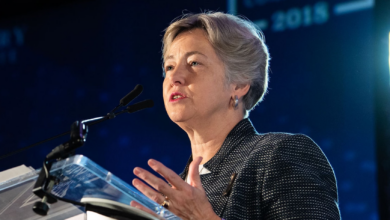Male Sex Assault Victims Face Societal Pressures
By Silas Allen, The Oklahoman
EDMOND, Okla. (AP) — Although the two groups have more in common than not, experts say male sexual assault victims are often left to deal with certain issues that female victims might not face.
Research suggests more than half of all sexual assaults in the United States go unreported. But when the survivor is male, like the victim of a recent sexual battery at the University of Central Oklahoma, experts say social pressures can make it even more difficult to come forward about the incident.
UCO campus police are seeking a “person of interest” after an 18-year-old male student reported being sexually assaulted in a campus dormitory.
The assault took place about 2 p.m. Sept. 23. According to a notice sent to UCO students on Sept. 26, the suspect is a light-skinned black male in his early 30s. The suspect is about 5 feet 8 inches tall and between 160-180 pounds, with a shaved head and thin mustache and beard. The suspect used the first name Marcus, and the name “Perkins” was tattooed on his left forearm, according to the notice
University officials haven’t yet released the name of the person being sought. UCO spokeswoman Adrienne Nobles said the university is waiting for the Oklahoma County district attorney’s office to file charges before releasing the person’s name.
According to the alert, the 18-year-old man met the suspect in a common area in Murdaugh Hall, a men’s dormitory, and then went into a dorm room, where the incident took place.
The incident wasn’t the first sexual assault the university has seen in recent years. UCO had two forcible sexual offenses in 2010, the most recent year for which records are available, according to data collected under the federal 1990 Jeanne Clery Disclosure of Campus Security Policy and Campus Crime Statistics Act. The campus saw two such offenses in 2009, and one in 2008.
Men represent a small but significant share of the nation’s sexual assault victims. According to data from the U.S. Department of Justice’s Bureau of Justice Statistics, 11 percent of sexual assault victims between 1992 and 2000 were male.
Less than half of all victims of rape and sexual assault, regardless of the victim’s gender, report the crime to police, according to Department of Justice data. In 2010, 51 percent of all rapes and sexual assaults went unreported, down from 77 percent the previous year.
Male victims tend to be even less likely than females to report instances of sexual assault, said Ken Elliott, director of UCO’s Violence Prevention Project. That unwillingness to report incidents comes mostly from social pressures and expectations regarding men and boys, he said.
Americans tend to believe that disclosure of vulnerability is a sign of weakness, particularly among men, Elliott said. So male victims of sexual assault often worry they’ll be seen as effeminate, he said, or that they’ll lose the respect and support of their family and friends.
Straight victims may fear others will perceive them as gay, he said, and gay male victims may worry that others will think they deserved the assault, or invited it in some way.
The fact that male victims tend not to report being sexually assaulted leads to greater feelings of isolation among those victims, Elliott said. Although a sexual assault is a traumatic, life-changing event for anyone, Elliott said, female victims often have more resources available to them, such as survivors’ networks.
Worse, said program coordinator Wendy Joseph, male victims are less likely than females even to bring the assault up in conversation with another man. Whereas female victims may know another woman who survived an attack, male victims are often left without a support network of any kind, adding to their feelings of isolation.
It’s important for male victims to know they aren’t alone, Elliott told The Oklahoman (http://is.gd/iXqlj3).
A 2005 American Journal of Preventive Medicine report showed roughly one out of six boys are sexually abused before age 18.
Making people aware of numbers regarding sexual assault targeted at men and boys is important, Elliott said, because it could help reduce the stigma surrounding it. Ultimately, he said, it could make male victims more willing to report the abuse and seek help.
“They are not alone,” he said. “It takes a real, strong man to talk about these kinds of vulnerabilities.”










